Many among Israel’s wine intelligentsia believe the wine world revolves around points, medals, forest fruits, and astringency. They are quite disappointed when they learn to what a small fraction of the wine industry these details are of interest. It is disconcerting for them that, by far, the majority of the wine in Israel is bought in supermarkets, in a way similar to any other commodity.
Quite a number of wine drinkers actually prefer Moscato, Lambrusco, or Blue Nun to a complex Cabernet. They are not interested in the flowery language on the back label. An eye-catching label or attractive promotion is more likely to sway their final choice than where the grapes were grown or how long the wine was aged. It is a fact that 90% of wine sold is in the under NIS 40 category. Many wine lovers will be surprised that this is the case.
The supermarket range is dominated by the three giants, Carmel, Tempo (Barkan & Segal), and the Golan Heights Winery. They will usually be complemented by any combination of the other top-10 wineries, with a few big-brand imports thrown in.
Over the past few years there has been a welcome process of “premiumization.” More boutique wines and deluxe spirits are now available in supermarkets than ever before. Furthermore, there are more famous wine brands making kosher cuvées, thus enriching the kosher consumer’s options.
However, in terms of retailing, we are still far behind Europe and America in wine marketing to the mass market. The wine display shelves are often a shambles, and even those that are set up nicely are usually in a mess halfway through the day. The retailers don’t seem to adhere to any planogram that makes sense. The concern appears to be to satisfy the major suppliers rather than being customer-friendly. It would be so much smarter to build a coherent system of colors, icons, and signage that draws the customer in, providing the necessary information and explanations to make the instant wine buying that much easier.
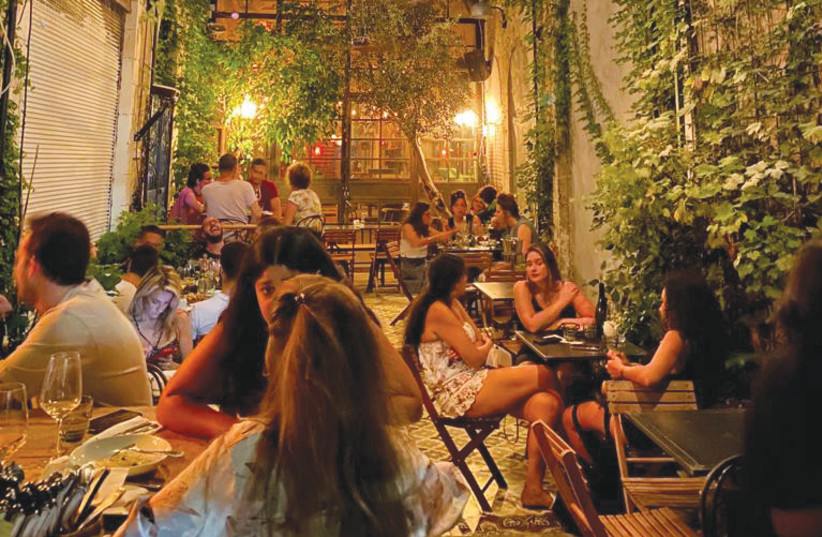
Shelves always used to be organized according to wineries or winery brands. It is certainly in the large winery’s interest that the Selected, Classic or Hermon wines are grouped together. It strengthens the brand. I believe that in the mass market, customers choose their wine by grape variety more than anything else. If you were to ask people what wine they drink for under NIS 50, they will invariably answer with a grape variety such as “Merlot” rather than a winery, a brand, or even a wine style.
In any case, most of the wines sold in the under NIS 50 category are varietals. This would be the most logical way of categorizing the shelves. It is not really important what display language the retailer chooses, but it must be consistent and able to be instantly understood by the wine-shopping customer.
By far the largest wine retailer in the country is Shufersal. It is the best place to create meaningful change. Osher Ad is a smaller chain that has made a commendable effort to upgrade its wine offer. Tiv Ta’am and Stop Market, not bound by kashrut, have ranges that would not be out of place in some wine shops. I, for one, am waiting to see if Carrefour Israel is the chain to make the big leap forward with wine. Time will tell.
Unfortunately, wine and spirits are only a tiny part of a supermarket’s income, so wine is probably fairly low down on the list of priorities. The three things that are important for the sector are sales, sales, and sales, and much management time is spent dealing with administrative and logistical problems to achieve this. The culture is geared toward selling at any cost. No one has the time, inclination, or long-term vision to consider reinventing the rules of wine retailing in Israel. For the buyer on price, however, the best promotions, lowest prices, and easiest place to shop for wine is still in a supermarket, and the range of options for the prospective buyer is better than ever.
Visiting Israeli wine stores
Nevertheless, those who want advice, or maybe even the chance to taste before they buy, will be best advised to patronize a wine store. Israel’s pioneer wine shops were Avi Ben in Jerusalem and Derech Hayayin (“the wine route”).
The opening of the first Derech Hayayin on Hashmonaim Street in Tel Aviv in 1993, was a milestone event. The stores was founded by wine visionary Uri Shaked, who imported the concept of quality wine retailing. It was not an easy beginning. Shaked was then the distributor of the Golan Heights Winery, which was not thrilled that the shop also stocked the produce of other wineries. Carmel, too, then far more dominant than today, was reluctant to sell wines to a shop run by Golan distributors. Shaked bulldozed ahead anyway, and the rest is history.
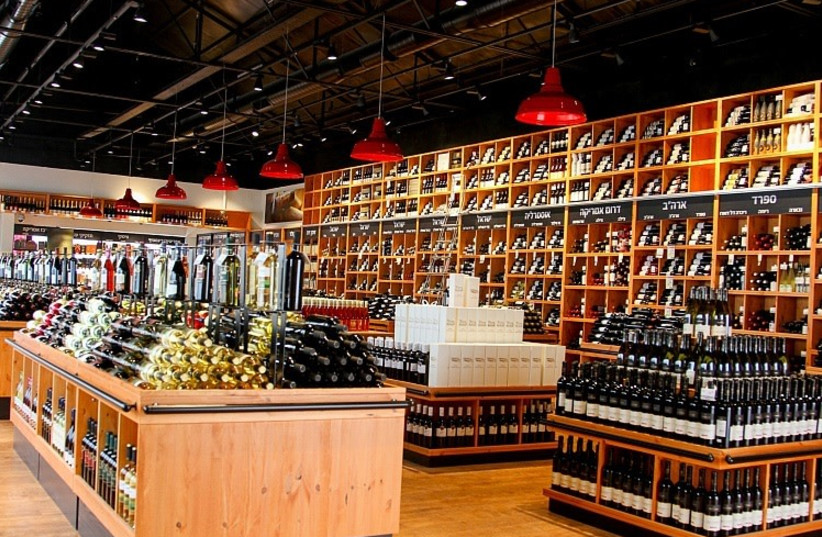
Today, apart from owning the Derech Hayayin chain, Shaked is the No. 1 importer and distributor of fine wines, part owner of Recanati Winery, and partner in a joint distribution venture with Golan Heights Winery. Shaked is therefore involved in the complete cycle of wine, from the vineyard to the glass.
I recently visited the 30-year-old store and noticed that the concept had changed. Wine shops in Israel normally sell wine by country or wine region. However, this particular one was promoting wines by short, easy-to-grasp descriptions, like “light white,” “aromatic white,” “rich white,” “light red,” “classic red” and “rich red.” I understand that this is only for a trial period. Such a concept would be nothing new in the outside world, but here it is a welcome initiative. Derech Hayayin has not quite done it with the pizzazz I could have hoped for, and it still needs work (to succeed, the immersion has to be total), but it is an innovation here – and a good start.
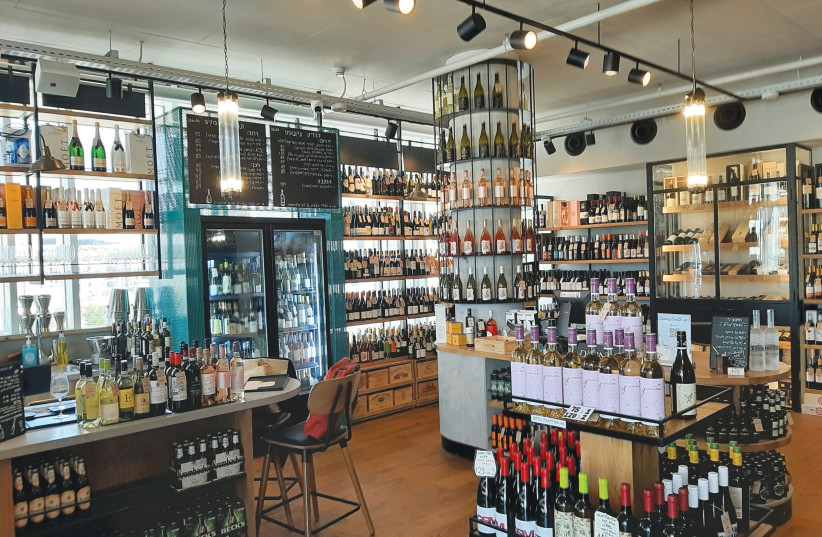
THERE ARE wine shops everywhere. In Ra’anana alone, where I live, there are six specialist wine shops. It is important that you discover the right store for you. When you scratch the surface, you may find things are different from what they seem. For instance, we have a reasonably new, bright, and shiny wine shop near us that looks like the real deal. It has a very large inventory. However, when I look closely at the shelves, there are wines that even the winery thinks are past their best, which raises questions about the professionalism of its wine purchasing. Whenever I go in, there is a young lad on his telephone. I have been in and looked around and gone out without him even looking up. And it is not the same “him” each time.
Once, I attended a wine tasting that took place in the sweltering heat. As a concerned taster, I suggested that it might be prudent to chill the reds. Instead of making allowances, even with faint amusement for what she thought to be a request of an old eccentric, the lady pouring the wine looked at me witheringly and explained, patronizingly, “We chill whites, not reds!” I did meet the co-owner twice, and each time his first question was: “Have you written about us yet?” Well, now I have. But to spare embarrassment, I have avoided reporting the establishment’s name. However, this is not the type of wine shop I could ever recommend, nor one that I would use myself by choice, even though at first glance it appears to tick all the boxes.
Possibly the smallest wine shop in Ra’anana is the newest, and it also has a new concept. It is called Ha ve Da (“this and that”) and is situated in the Neveh Zemer neighborhood. It is a wine shop, wine bar, and delicatessen with a shared area for eating, drinking, and schmoozing. You can buy wine or take-home food. Or for a small corkage fee, you can purchase wine and food platters for two, and sit on the balcony and eat and drink in good company, watching the world go by.
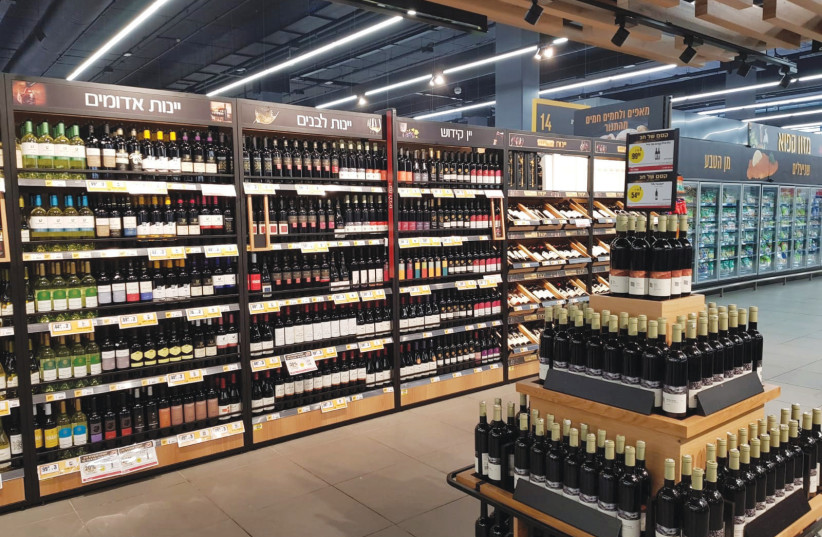
Ha ve Da is managed in the best of traditions by a wine professional – and English speaker. British-born Simon Mendoza has close to 25 years’ experience in wine retailing in Israel. Apart from our being English speakers, we also have our Sephardi roots in common: Both our parents were married in the Bevis Marks Synagogue, although Mendoza was born in Manchester and I in London.
So, check out your local wine stores to find the one that provides the type of service and welcome that you expect. The one that becomes your local will be the one that caters to you personally.
ONE OF the most welcome new additions to the local wine scene is the large number of wine bars that have sprung up, mainly in Tel Aviv. The Hagefen Local Wine Garden is one that comes to mind. These are places run by wine lovers who usually specialize in a wine style or region. Here you can taste, buy, eat, and talk about wine without the formality of a restaurant. Certainly, the best way to experience wine is accompanied by good food and good company, and Tel Aviv is the vibrant, dynamic center of our wine culture.
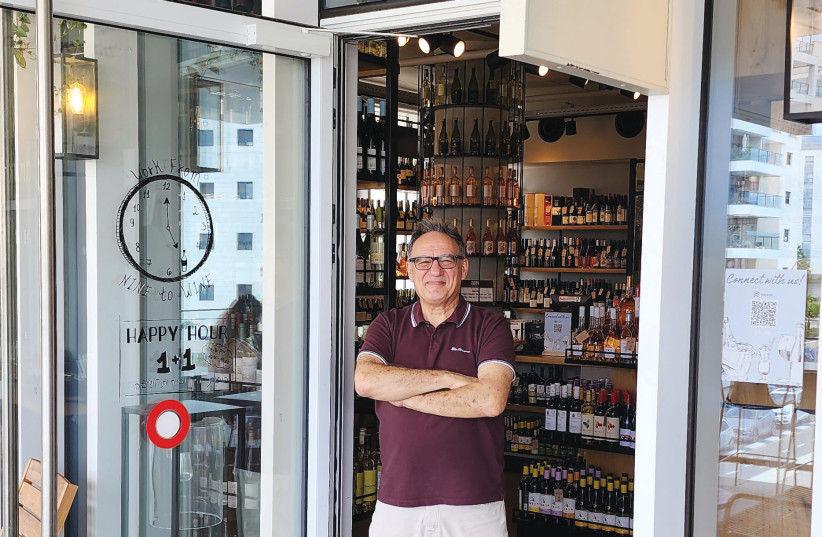
My message to everyone is that there has never been a better time for buying and enjoying wine in Israel. Feel confident and empowered to buy what you like at the price you want. I don’t agree that someone who you think understands more about wine than you do should have a veto on your choice of poison.
If you want to learn more, there are shops that can lead you on a journey of tasting and experimentation. And there are wine clubs (such as Devine) offering monthly selections, as well as wine schools eager to educate the public (such as the W-WSET approved Wine & Spirit School in Tel Aviv). It is a whole new world for those who want to explore, learn more, and purchase wine. For wine lovers and connoisseurs, and those who want to become more informed, the Israel wine scene is abundant, blooming, and ripe for the picking.
The writer is a wine industry insider turned wine writer, who has advanced Israeli wines for 35 years. He is referred to as the English voice of Israeli wine. www.adammontefiore.com
